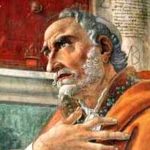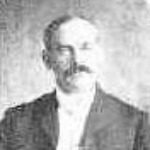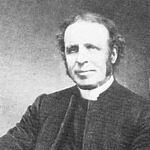Quotes about Jesus_Christ-Kenosis
Man was added to Him, God not lost to Him; He emptied Himself not by losing what He was, but by taking to Him what He was not.
The word of the Father by whom all time was created was made flesh and born in time for us. He without whose divine permission no day completes its course, wished to have one of those days for His human birth. In the bosom of His Father He existed before all the cycles of the ages. Born of an earthly mother, He entered on the course of the years on that very day. The maker of man became man that He ruler of the stars might be nourished at the breast, that He the bread might be hungry, that He the fountain might thirst, that He the light might sleep, that He the way might be wearied in the journey, that He the truth might be accused by false witnesses, that He the judge of the living and the dead might be brought to trial by a mortal judge, that He justice itself might be condemned by the unjust, that He discipline personified might be scourged with a whip, that He the foundation might be suspended on a cross, that He courage incarnate might be weak, and He security itself might be wounded, and He life itself might die.
From His possession of this “mind,” and in indescribable generosity He looked at the things of others, and descended with His splendor eclipsed – appeared not as a God in glory, but clothed in flesh; not in royal robes, but in the dress of a village youth; not as Deity in fire, but a man in tears; not in a palace, but in a manger; not with a thunderbolt in His hand, but with the hatchet and hammer of a Galilean mechanic.
The heart of the Adamic temptation was to grasp for equality with God (Gen. 3:5). Adam attempted to seize equality with God; Christ did not. By contrast Christ chose the way of self-emptying rather than self-aggrandizement.
Even in the midst of His death, He had to be the mighty God in order by His death to conquer death.
From Interpretation of Galatians, Ephesians, Philippians, Augsburg by Richard C. Lenski copyright © 1961 Augsburg Publishing House. Used by Permission.
Christ made Himself of no reputation precisely by taking on a human nature. He emptied Himself not by pouring out portions of His deity but by adding to Himself full and true humanity. His was an emptying by addition, not by subtraction. If He actually surrendered or gave up His divine attributes, then it might suggest that He ceased to be God-but that would result in something at odds with how the Bible identifies Him as being fully and truly God (see “Deity”). Yet even in taking on human nature, the Son of God fully possessed His divine nature, attributes, and prerogatives.
God the Son by John MacArthur and Richard Mayhue taken from Biblical Doctrine by John MacArthur and Richard Mayhue, copyright 2017, Crossway Books, a division of Good News Publishers, Wheaton Illinois 60187, www.crosswaybooks.org. Page 260.
For us, we’re trying to abandon sin and embrace holiness. For [Jesus], He was being tempted [in the Garden] to abandon holiness and embrace sin bearing. It’s just the opposite. This is incomprehensible to Him. This is repulsive to Him. This is foreign to Him; He’s not like us. He’s not fighting against sinful impulses to be holy. He’s fighting against holy impulses to be made sin.
Four Features of Triumphant Prayer. The sermon originally appeared at: (https://www.gty.org/library/sermons-library/42-273/four-features-of-triumphant-prayer) at www.gty.org. © 1969-2008. Grace to You. All rights reserved. Used by Permission.
We see Him humiliated and yet majestic. We see Him suffering and yet exalted. We see Him punished and yet innocent. We see Him hated and yet loving. We see Him subjected and yet sovereign.
The Final Passover, the First Communion. The sermon originally appeared at: (https://www.gty.org/library/sermons-library/42-269/the-final-passover-the-first-communion) at www.gty.org. © 1969-2008. Grace to You. All rights reserved. Used by Permission.
Whatever is meant by the “made Himself void,” [emptied Himself], which describes His Incarnation here, one thing it could never possibly mean – a “kenosis” which could hurt or distort His absolute fitness to guide and bless us whom He came to save. That [emptying] placed Him indeed on the creaturely level in regard of the reality of human experience of growth, and human capacity for suffering. But never for one moment did it, could it, make Him other than the absolute and infallible Master and Guide of His redeemed.
Look at Him – this amazing Jesus! He is helping Joseph make a yoke in that little carpenter’s shop at Nazareth. This is the One who, apart from His self-emptying, could far more easily make a solar system or a galaxy of systems. Look at Him again! Dressed like a slave, with towel and basin for His menial equipment, He is bathing the feet of some friends of His who, but for their quarrelsomeness, should have been washing His feet.… “He humbled himself!” “Don’t forget this,” cries Paul to these dear friends of his at Philippi. “Don’t forget this when the slightest impulse arises to become self-assertive and self-seeking, and so to break the bond of your fellowship with one another”(Paul Rees).
When He took on Him the form of a servant in our nature, He became what He had never been before, but He did not cease to be what He always had been in His divine nature. He who is God cannot ever cease to be God.
Meditation on the Glory of Christ, 1684, ch. 4. Get this book!
The impression of Jesus which the Gospels give is not so much one of deity reduced as of divine capacities restrained.
Consider the irony. At a certain point in time the One who was creator, would actually become part of His creation. The sustainer of the world would be killed by the hands He was sustaining. The One who was loved by the Father, would be predetermined to be rejected by the Father. The One who knew no sin, would become sin. And the One predestined to die for sinners, would be predestined before there ever was sin. First Peter 1:20, says He “has appeared in these last times for the sake of you.” The One who needs nothing, would come to the aid of those who hated Him and purchase a people for Himself.
Philippians 2:6 declares Jesus “existed in the form of God.” Although Jesus never lost being God, His form at a point in time did change. Originally, He was in the form of God. He shared the same external features of the Father – commonly identified in the Old Testament as a shining light. He was clothed in garments of diving majesty and splendor. We see a glimpse of this at the Transfiguration. Hebrews 1:3 tells us that Jesus is “the radiance of His glory and the exact representation of His nature.” This is emphasized because for Jesus (who is entirely glorious) to change in any way demanded a decent in His glory (humility!). Yet the One who existed in the form of God willing traded it for the “form of a slave” (Phil. 2:7). He left His glorious form for the ignoble form of man.
Jesus “did not regard equality with God a thing to be grasped” (Phil. 2:6). “To be grasped” literally means “to seize, to be carried off by force.” We could say, Jesus did not regard equality with God a thing to be used for His own advantage. This in no way means Jesus lost His divine attributes. We know He could read minds, walk on water and forgive sins. Yet this verse is teaching us that He chose not to use His divine attributes for His own advantage. Jesus fed others, but He went hungry. He defended others, but He accepted criticism. He delivered others from demons, but He was tempted by the devil. He raised others from the dead, but gave His own life on the cross. Rarely do we see Him reveal the glory that was due His name, especially in a way that worked for His own advantage.
Philippians 2:7 says Jesus “emptied Himself.” Here’s what that does not mean: Jesus did not place Himself in demonic powers nor did He empty Himself of His deity. The latter is commonly referred to as the kenosis theory or kenoticism. It comes out in the second stanza of the popular hymn, “And Can it Be.” “Emptied Himself of all but love.” It is best to think of Christ’s “emptying” Himself as a laying aside of the privileges that were His in heaven. Some like to think of it as what Jesus took on. Taking on humanity forced Jesus to often operate within the limitations of humanity. So, He emptied Himself, verse 7 tells by “taking the form of a bond-servant [“doulos” – slave], and being made in the likeness of men.”
The Father did not strip the Son of His eternal glory but the Son agreed to lay it aside temporarily for the sake of our salvation (Jn. 17:1-5).
O think, that he who was master of all heaven’s majesty came down to be the victim of all man’s misery!
He is the King of kings, the radiance of His glory, the Lord of the spaceless, fabulous, infinite universe, omniscient, omnipotent, omnipresent, unspeakable holy, dwelling in light, unapproachable, changeless … and yet He condescended to be enclosed in lowly human flesh, to be born a despised Judean, in a filthy stable, in the womb of a simple Israeli woman and without fanfare or pomp.
The kenosis was a self-renunciation, not an emptying Himself of deity. Nor was it an exchange of deity for humanity. Jesus never ceased to be God during any part of His earthly ministry. He did set aside His heavenly glory. He also voluntarily refrained from using His divinity to make His way easier. During His earthly ministry, Christ completely submitted Himself to the will of the Father.
Got Questions? What is the kenosis? What does it mean that Jesus emptied Himself? Used by Permission.
There are some false teachers who take the concept of kenosis too far, saying that Jesus gave up all or some of His divine nature when He came to earth. This heresy is sometimes referred to as the kenosis theory, but a better term is kenoticism or kenotic theology, to distinguish it from biblical understanding of the kenosis.
Got Questions? What is the kenosis? What does it mean that Jesus emptied Himself? Used by Permission.











